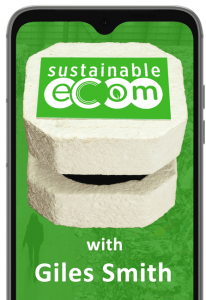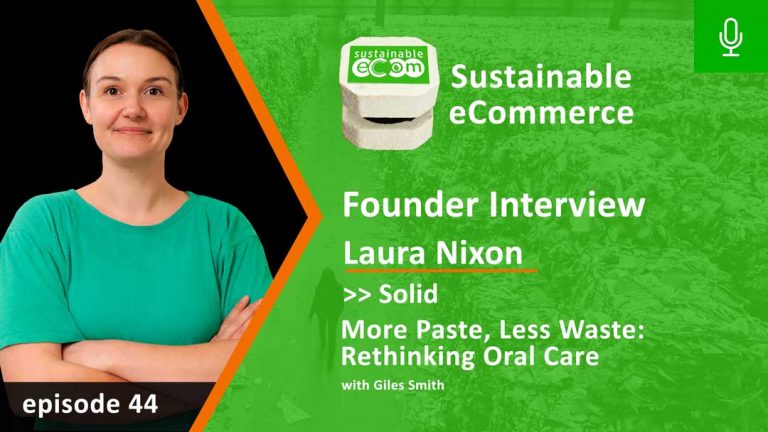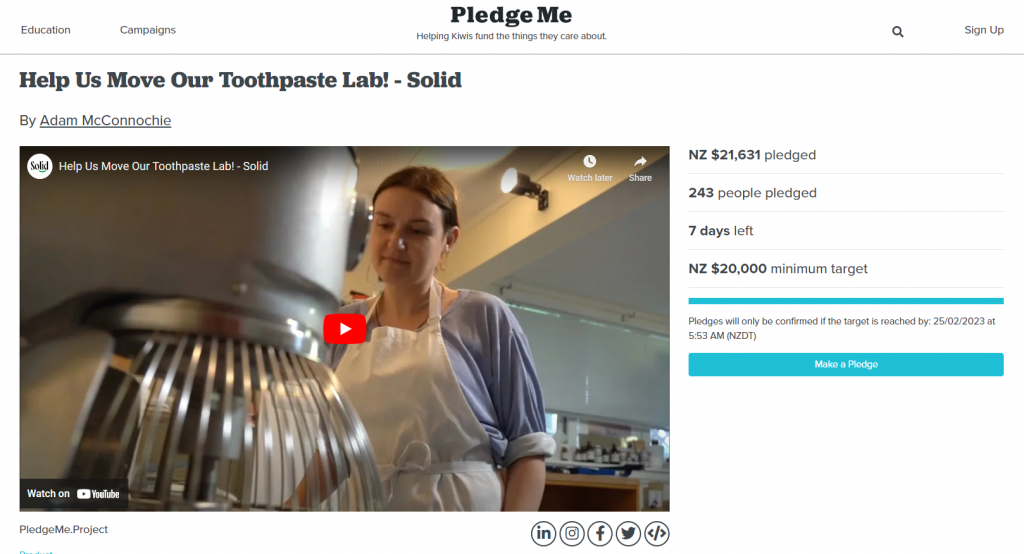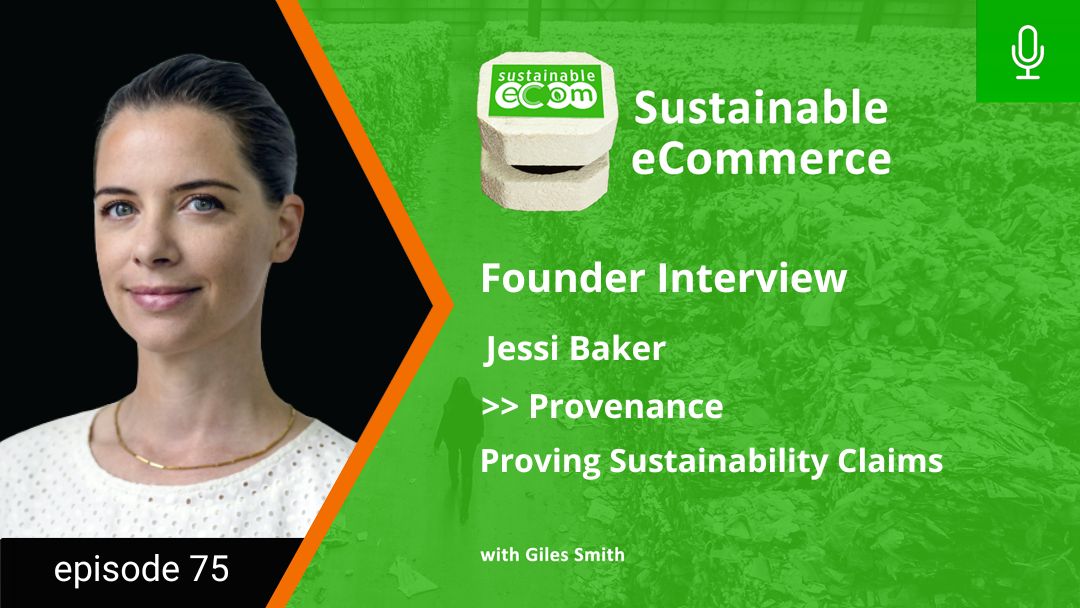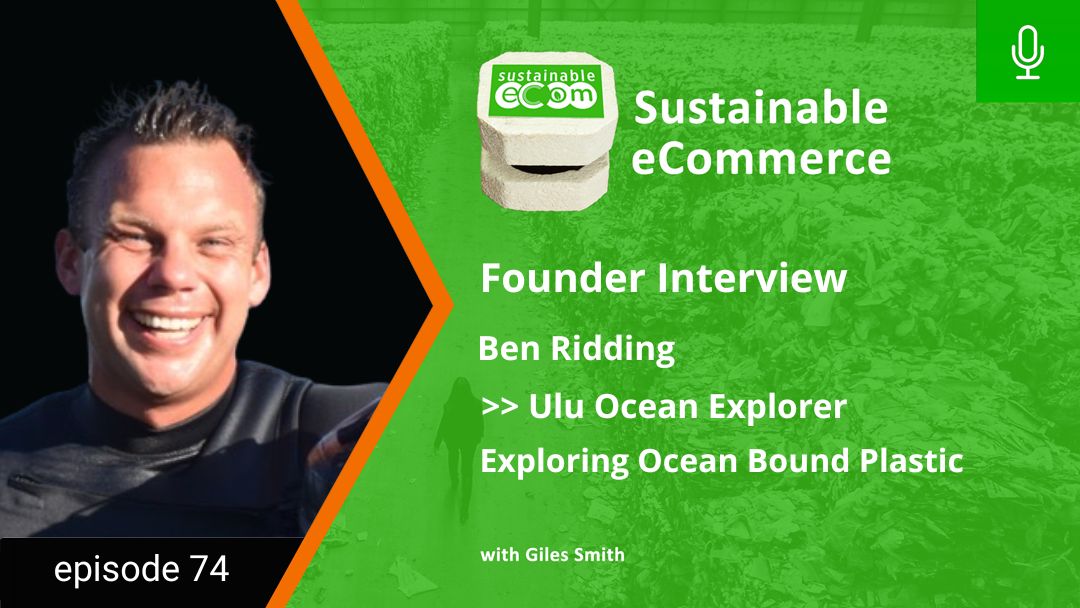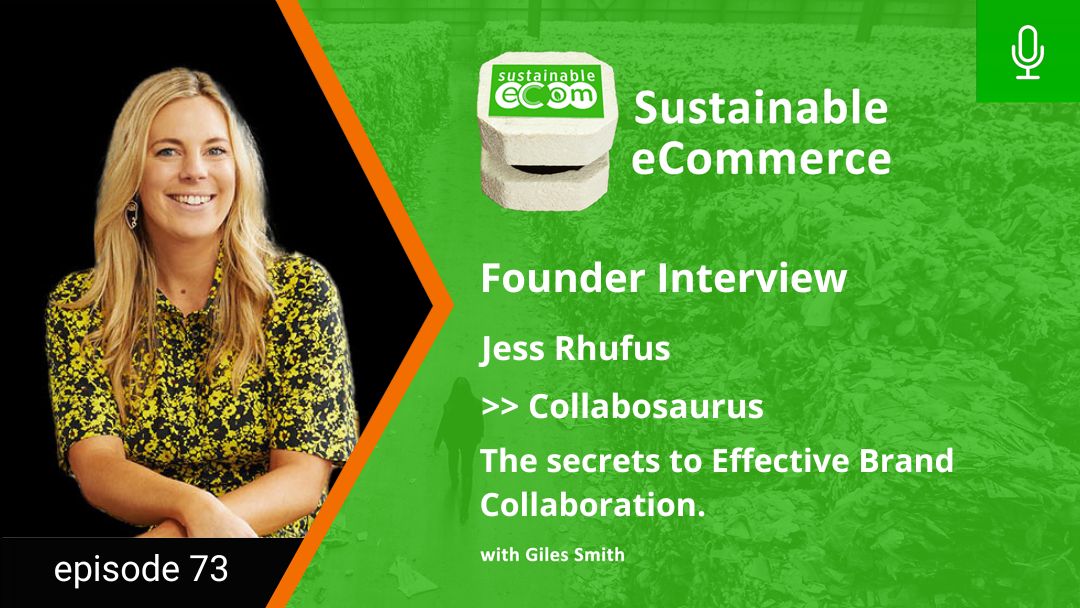Welcome to Episode 44 of the Sustainable Ecommerce Podcast!
My guest this week is Laura Nixon, founder of NZ-based oral care brand Solid. Laura started up Solid after becoming alarmed by the sheer volume of plastic being produced in oral care industry, not just in toothpaste tubes, but also in the single use PPE used in clinics across the profession.
Solid only got going 3 years ago, but already you can find their products in stockists across NZ, and they have huge plans for expanding to new markets this year, as well as an imminent upgrade in their production facility.
I know that in our household, we made all sorts of incremental improvements in single use plastics, from refillable home cleaning products, to personal care items, toilet paper and so on, but one untouched area for us to date has been toothpaste, so it was exciting to be able to hear more about that as well as get the inside track on the cutting edge of this space
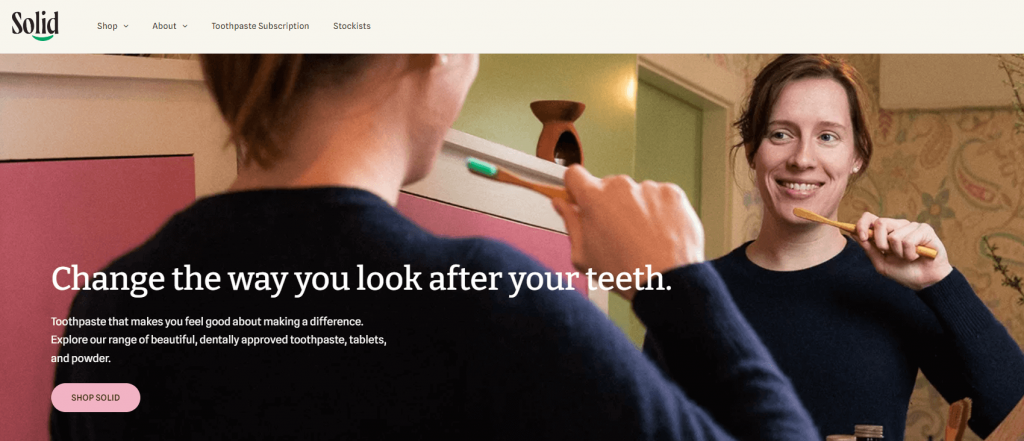
About Laura Nixon
Prior to starting Solid with husband Adam, Laura worked as a dental therapist and dental hygienist. She started to notice the amount of plastic waste being generated in the professions, things like single use plastic gowns, food wrap, floss, gloves and other PPE. However, when she realised similar problems were being experienced in every home through things like toothpaste tubes, whitening kits, mouthwash bottles etc, she knew she wanted to solve this problem.
Having always been scientifically minded, she started at home researching and mixing ingredients to work out how to make toothpaste, ultimately resulting in a more concentrated paste, toothpaste tablets and toothpaste powder.
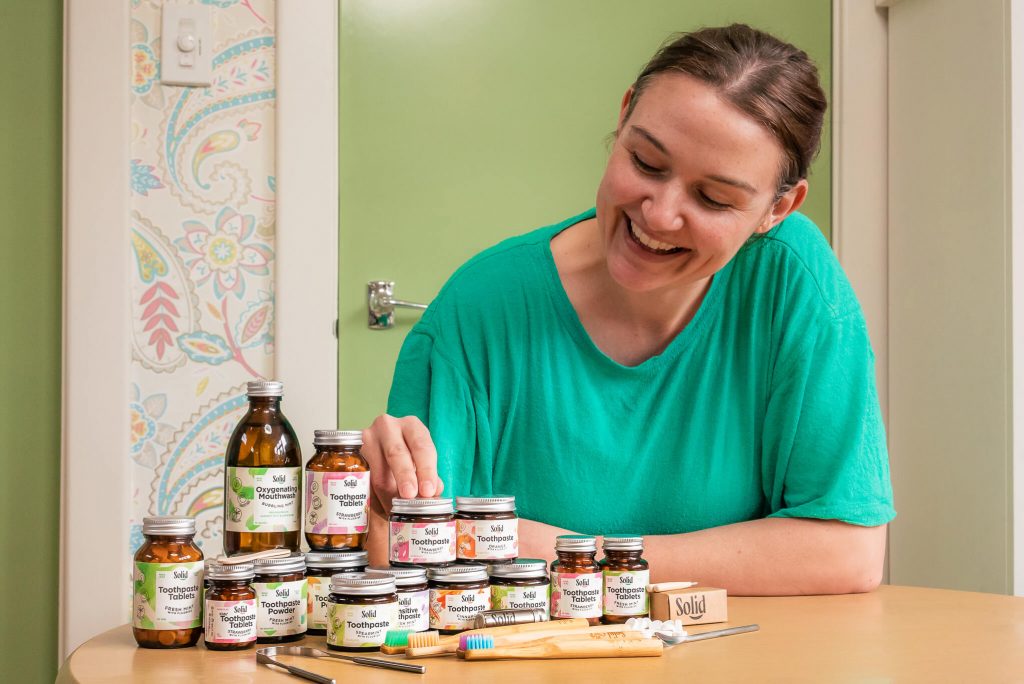
The Toothpaste Tube problem
In NZ alone 16 million tubes of toothpaste are sent to landfill every year, roughly 4 per household. Scaling that up to bigger countries, that’s over 100 million in Australia, and over a billion in the US.
Worse, with the materials used to construct and the reality that even when ‘empty’ they still contain paste, they are effectively impossible to recycle.
Changing the composition of the toothpaste means you can easily change the primary packaging, which is what has enabled Solid to replace the tubes for glass jars with aluminium lids. Furthermore, Solid have implemented a refill system which means the same packaging can be used many times. You can either take your jar into a refillery store and squeeze it in like ice cream, or send back your jars to the brand, where they will wash, sterilize and reuse them up to 30 times before they wear out and need to be recycled.

Why Toothpaste Tablets are a great solution
Solid’s thick toothpaste contains much less water than traditional toothpaste (which contains approximately 40% water), so you get a lot more uses from a jar than you do a tube. However, their other solution is to turn the paste into tablet form.
That changes the game on toothpaste’s sustainability profile. Aside from being exactly the right amount of paste to use for each brush (thus eliminating wastage), the absence of water makes them lighter to ship, easier to transport, and can once again be packaged in fully recyclable (and refillable) glass jars. Tablet refills are sent out in home-compostable bags. They are also functionally a better solution, easier to use than normal paste, much less mess.
Solid are also rethinking what’s possible with toothpaste flavours. While mint continues to be the best seller, they also offer strawberry flavour as well as soon to be released lemon.

Producing Toothpaste In-House
In the early days of the brand, toothpaste was produced in small batches in a Kenwood food mixer in their kitchen. As time and demand progressed, the team expanded and converted their basement into a production facility, adding a storage container to their front yard. With all that space fully used, they are now looking to move into a dedicated production facility and have decided to run a PledgeMe campaign to fund that work. At the time of recording they had reached 75% of their target, but already by the time of this episode release they have reached 100% of their target to release the funds, so they are on their way!
The choice to produce the toothpaste as a core internal capability is an interesting and unusual one. Most personal care brands, like Dust & Glow, Lashes of Change and WotNot Naturals outsource production to a contract factory which has the capability to produce product at scale.
However, Laura’s view is that she wanted to complete control of the process, as well as total transparency of the materials and sourcing. Plus, the way Solid make their tablets is different to everyone else. Producing it in-house enables them to protect that IP for as long as possible. It also means they have greater visibility and influence over pre-consumer waste, including influencing their upstream suppliers to reduce plastics and other unnecessary items out of their deliveries.
Getting Climate Positive Certification
While some brands aim at Carbon Neutral, Solid has aimed even higher seeking and ultimately acquiring Climate Positive status via partners eKos. Understandably, Laura describes that as being “Quite a journey”. They were helped right from the start being focused on doing everything with as low a carbon footprint as possible, so not too much had to change.
The hardest part was the lack of actual proof and transparency on the upstream supply chain, an exploration of which is a requirement of getting the Climate Positive certification.
Expanding to New Geographies
To make an impact, the team know that while the domestic market in NZ has been their launchpad, there is a cap on the number of people they can help and who are open to trying other forms of toothpaste.
As a result, they are planning to expand into Singapore and Australia markets in 2023. However, their necessity to maintain focus on carbon footprint means that they can’t simply market in these regions and ship from NZ, so they are currently exploring whether to find wholesale distributors, work directly with store or even implement their own online store with local distribution centre.
Not all products will get taken to international markets. For example, their mouthwash is preservative-free, and so has a limited shelf life making it hard to sea-freight and then store in fulfilment centres while managing the expiry.
That’s not to say their focus is shifting away from NZ. They continue to look for more stockists to expand their penetration in their home market, especially larger, multi-store stockists.
Despite their significant presence in NZ through their stockist network, most growth has been online driven by simple digital marketing they gave run themselves in-house. Indeed, they managed to triple their online growth in 2022 when activating Facebook paid media.
Laura’s focus has been on creating engaging video content, with different formats for things like Instagram reels vs Facebook Ads. Their best performing ad is simply of one of their refill machines pouring out toothpaste into a jar – demonstrating that quirky, original content is still a winning formula since these ads have been their most successful at engagement, and longest running.
Instagram reels have also been a great source of free views & traffic. Seeing the lack of traction from Facebook organic content, Laura doesn’t invest much time in that area now, with the simple advice that as a founder there are only so many things you can get done in a day, so focus on the things that bring the most return!

Managing Toothpaste Subscription
Like all consumable products, the option to give customers a subscription enables a great customer experience as well as being a smart business model for customer retention and Frequency. However, subscription programmes are notoriously hard to manage and to be successful you need to enable the customer to completely customize their items and periodicity to meet their needs. Indeed, Laura believes that managing their subscriptions service is one of the more difficult parts of the job.
What’s next for the 12 – 18 months?
New products will be launching soon that they were working on in 2022, including a sustainable tooth whitening kit. In addition the team have 3 new pastes coming to market for people who need extra protection for their teeth, EG with extra Fluoride for sensitive teeth.
To get the Solid products go to solidoralcare.co.nz.
Top Takeouts
Firstly, of course we have to talk Meta content. Laura gave us a pretty direct view of what’s been working for her over the past year or so, and that’s video. Specifically, video ads on Facebook and Reels on Instagram.
Laura’s been investing very little time organically on Facebook, and when less than 5% of your audience get to see your content without promotion, that’s not surprising. Not that it doesn’t work, but like she said, it’s about spending time where you’ll get the highest value returns, and as a flat out entrepreneur, that’s the sort of logic you can’t argue against.
It’s worth trying different types of content and testing it too. If you check out Solid’s reels you’ll perhaps not surprisingly see that content featuring the founders gets reliably good engagement, but the most watched reels of all, as Laura said, are the videos of the toothpaste refill machine. I guess there’s something intriguing and unusual about it, but I’m not sure you could have guessed it would be 10x as good as anything else.
Lastly, if you’re running subsscription services, it’s absolutely vital to enable the customer to configure it with things like number of units and frequency, and don’t just assume it’s set an forget. Customers are much more likely to stay subscribed if you allow them to change their subscription whenever and however they wish.





